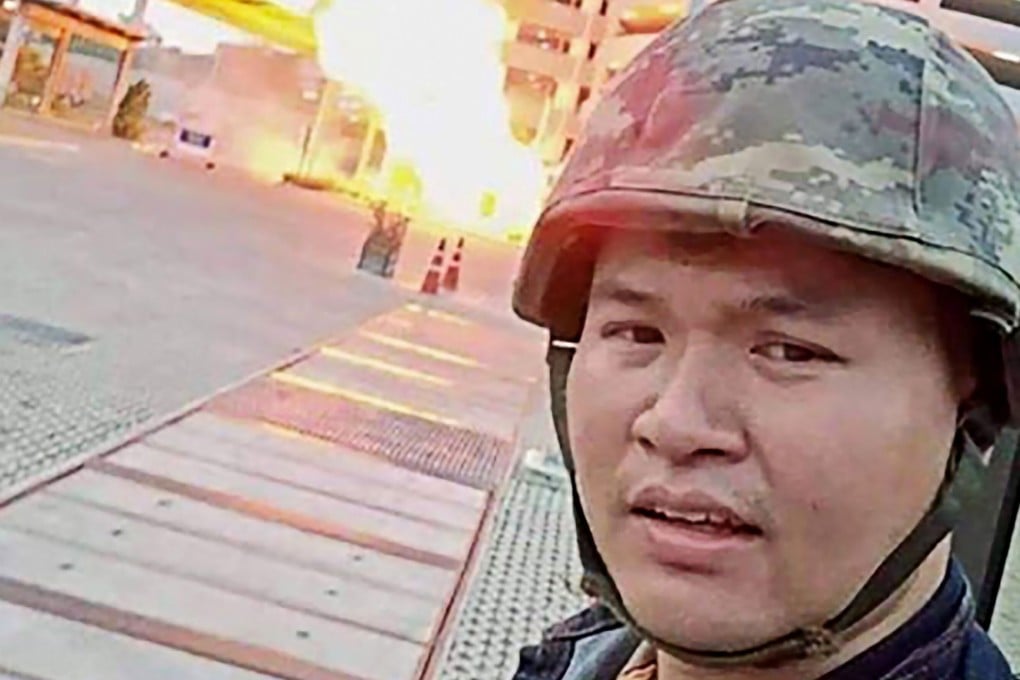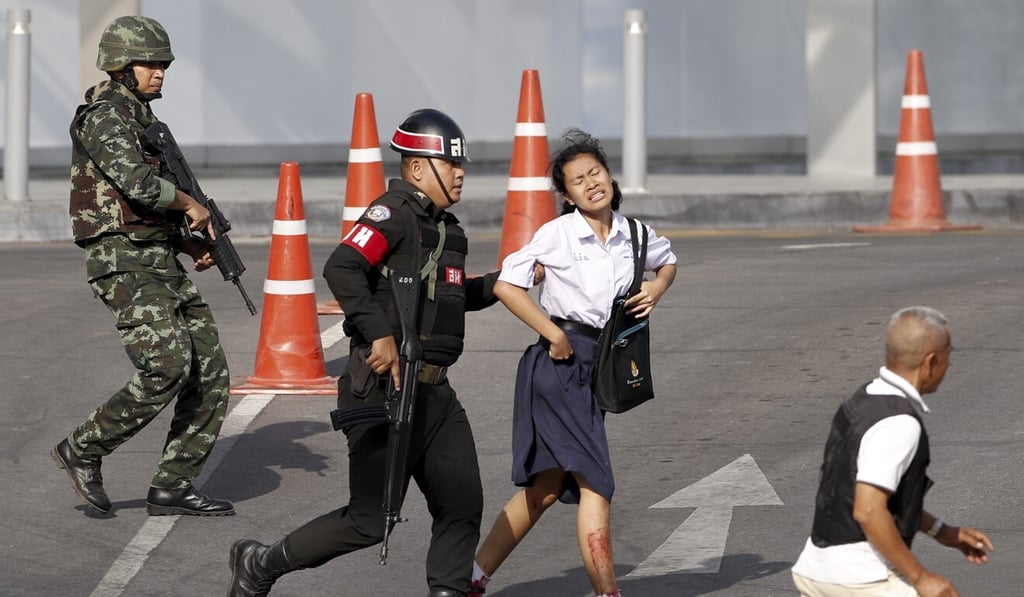Advertisement
One year after Thai soldier’s mass shooting, promises of military reform have not materialised
- Sergeant Major Jakrapanth Thomma, enraged by a shady business deal involving his commanding officer, killed 31 people at a shopping centre in Korat
- Despite initial pressure to address corruption within the barracks, critics fear the Thai military is too deeply enmeshed in politics and business
Reading Time:4 minutes
Why you can trust SCMP

One year ago, Sergeant Major Jakrapanth Thomma carried out Thailand’s deadliest mass shooting, killing 31 people after he opened fire at a shopping centre in Korat in the country’s northeast. His actions were sparked by a clash with his superior over a business deal.
Security guard Supachai Tangyoo, 42, was injured in the shooting and returned to his post at the Terminal 21 mall last week. A bullet fragment remains lodged in his hip, causing him to walk with a pronounced limp, but he knows he was lucky to escape with his life.
“Two of my colleagues died, another was wounded,” he said. “I’ll make merit for them… and everyone else who died,” he added, referring to Buddhist alms-giving ceremonies planned near the shopping centre.
Advertisement

The massacre prompted scrutiny of both the deadly gun culture in Thailand, which is awash with firearms, widespread abuse of power within the country’s barracks, and the involvement of soldiers in the army’s business activities, which include boxing stadiums, golf courses, a horse racing track and resorts. The revenue streams for such assets are opaque.
Advertisement
Jakrapanth’s rampage began when he killed his commanding officer. He stole a cache of weapons and an army Humvee, before live-streaming parts of his shooting spree over Facebook. He killed soldiers and police, and fired on a Buddhist temple before targeting the mall, where he gunned down shoppers and security guards at random. He was eventually shot dead by police commandos after a 15-hour stand-off.
Advertisement
Select Voice
Select Speed
1.00x